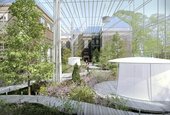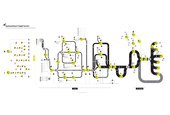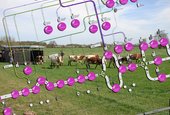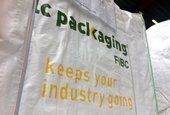
Life Cycle Assessment (LCA)
Service > Impact mapping across the product and service life cycle
Except offers Life Cycle Assessment for impact comparisons between products or services. LCA is one of the standard tools in an industrial ecologist’s toolbox. At Except, LCA methodology is often used as part of our integrated sustainability assessments. We also offer LCA as a stand-alone service. In addition to standard LCA outputs, Except specializes in visualizing the impact chain, making the complex data of a typical LCA easy to communicate and beautiful to look at. Many of our visualized life cycle inventories are confidential, but you can see a few examples in our map library here (link to system mapping dossier).
Examples
BKCity Slim Refurbishment
BKCity is a magnificent listed monument of more than 30.000m2 functioning as the faculty of Architecture of the TU Delft. Except created a phased plan to make this historic educational building energy and carbon neutral within ten years.
The plan converts the building into a didactic tool that puts sustainability at the heart of education for generations of architects, introducing a unique in-building ecosystem that provides an inspiring environment, functional qualities and cost savings.

Carpet sector roadmap
Together with MODINT and DNV we mapped the Dutch carpet sector and developed a road map to a circular carpet industry in 2030. We used system mapping and visualization techniques to bring at-a-glance insight to the stakeholder meetings. With this insight we plotted interventions to transition the industry towards a circular and bio-based industry within two decades.

Meat Sector Roadmap
We developed a roadmap of the Dutch meat process sector, production and processing companies and their suppliers, together with DNV. The road map shows opportunities for optimal use of all energy and material flows in the product chain of chicken, pork and beef, and maps their sources. The maps bring insight to all stakeholders involved, and enables decisions on improving entire sections of the production chain at once.

No Time To Waste (2018)
LC Packaging serves customers across the globe with packaging products to protect, preserve and transport goods. Except was requested to assess its baseline sustainability performance.
At product level we examined reusing Flexible Intermediate Bulk Containers (FIBCs) and found a significant CO2 emission reduction potential. At corporate level we investigated energy and water use, waste generation and CO2 emission. See below for our main findings.

Contact
Tom Bosschaert
Director
 +31 10 7370215
+31 10 7370215
